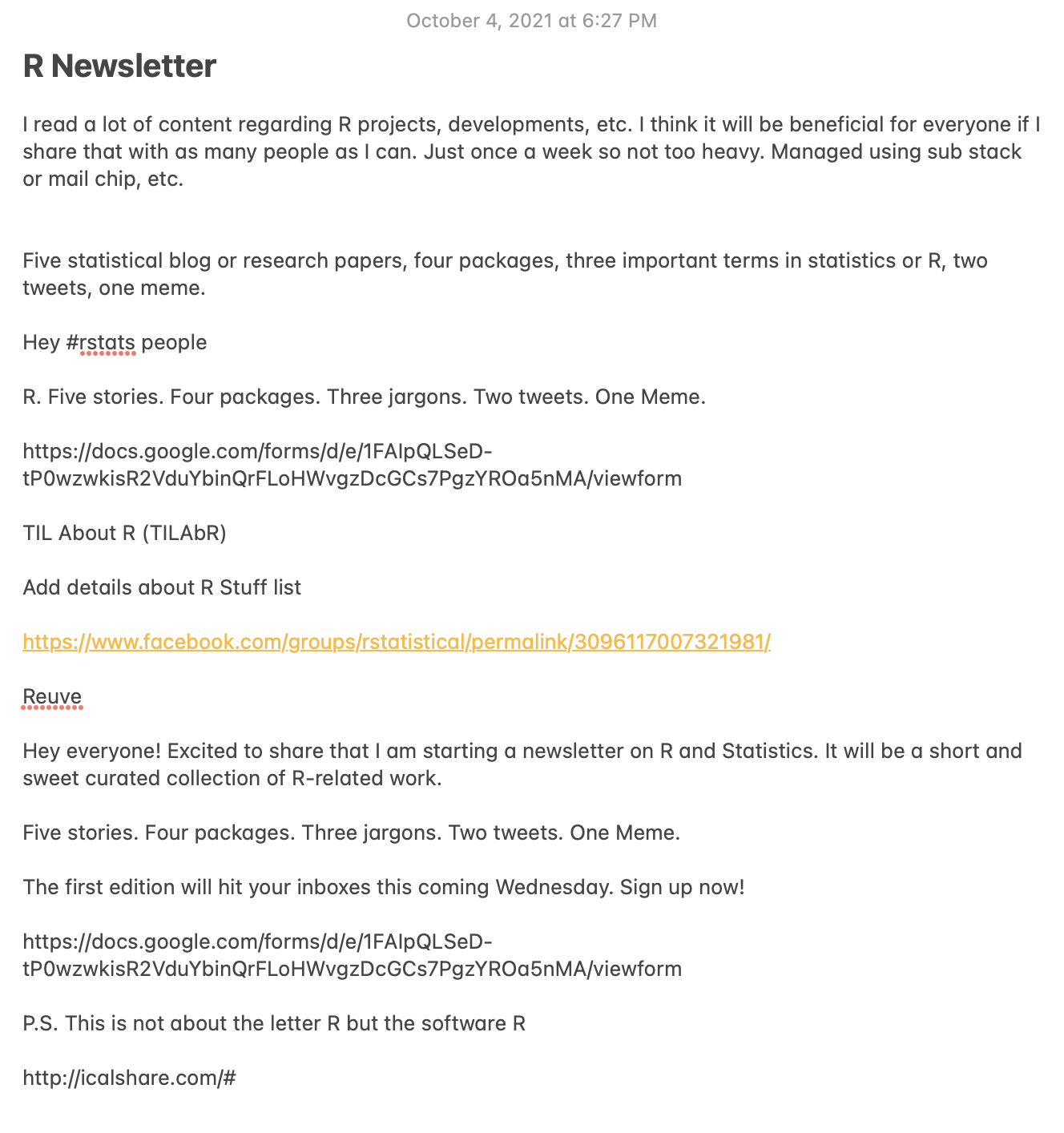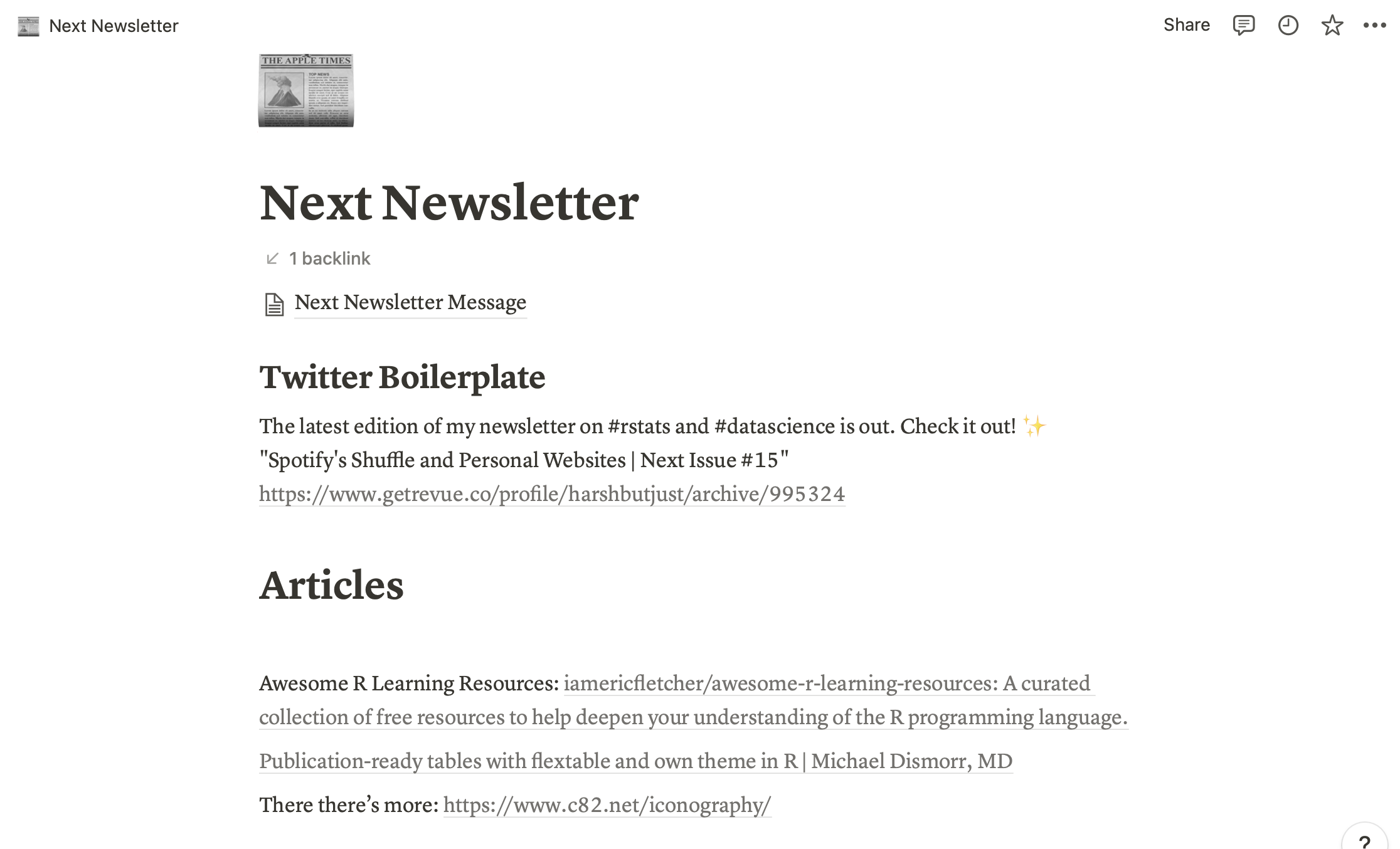Trying New Things
It is essential to keep experimenting with new things in life. We don’t know what would stick and be successful; we can only take guesses. More often than not, we tend to be risk averse because we don’t know enough. However, being a little more optimistic pays off in the long term.
Writing your ideas is essential. Your ideas are your baby and you’ll protect them from all the harm, without ever testing them if they’re right. Writing forces you to think critically. You need to write not because you have an assignment due next week but because you need to think.1 Thinking makes you act formidably.
A simple way I started keeping track of my actions (or inactions, depending on how you see them) was to jot them down in my notes app. In fact, I am writing this monologue in my notes.2 But once I have a formidable idea on what I’m aiming at, I can easily act on them.
Even if the ideas I noted down aren’t actionable — and in most cases they are not — writing them down gives me a clarity of thought. Prof Sean often says how we can imagine things in our mind without clarity and only when we write them down we can find how much we think we understand.
Consider the example of my newsletter, Next. One fine evening, I was chilling with my roommates on our front porch and this idea came to my mind: writing a #rstats newsletter with five stories, four packages, three jargons, two tweets and one meme. I noted it down. Almost all the details I could think of at that time.

These notes in isolation do not make sense. But these give me a good grasp of how things would pan out if I actually started with the newsletter.
A few weeks later when I actually started writing the newsletter, this information became the most important thing I referred.

I also experimented with different methods to take note. I tried Notion, but it was far too organised. I felt like I was spending more time organizing what I was writing than the time I spent actually writing. Notes app gives me a simple method to search and that is how I access most information anyway.3
Many fall into the trap of writing with fancy words. While occasionally they’re great, mostly they’re come out as pedantic. Writing with superfluous words makes our point elusive to readers. Furthermore, if you’re writing in English, there’s a high chance your reader’s first language might not be English.
Fancy writing also conceals the lack of ideas. People with obscure ideas (read: Lawyers) often use fancy words that are designed to confuse the readers. Why else would “and/or” be a thing?
Writing about an idea, even about an idea that you thought you knew well, usually shows how little you understood about that idea. Paul Graham has amazing essays4 on why we should write and how to get started. I’ll just pull my favourite paragraph from there.
As for how to write well, here’s the short version: Write a bad version 1 as fast as you can; rewrite it over and over; cut out everything unnecessary; write in a conversational tone; develop a nose for bad writing, so you can see and fix it in yours; imitate writers you like; if you can’t get started, tell someone what you plan to write about, then write down what you said; expect 80% of the ideas in an essay to happen after you start writing it, and 50% of those you start with to be wrong; be confident enough to cut; have friends you trust read your stuff and tell you which bits are confusing or drag; don’t (always) make detailed outlines; mull ideas over for a few days before writing; carry a small notebook or scrap paper with you; start writing when you think of the first sentence; if a deadline forces you to start before that, just say the most important sentence first; write about stuff you like; don’t try to sound impressive; don’t hesitate to change the topic on the fly; use footnotes to contain digressions; use anaphora to knit sentences together; read your essays out loud to see (a) where you stumble over awkward phrases and (b) which bits are boring (the paragraphs you dread reading); try to tell the reader something new and useful; work in fairly big quanta of time; when you restart, begin by rereading what you have so far; when you finish, leave yourself something easy to start with; accumulate notes for topics you plan to cover at the bottom of the file; don’t feel obliged to cover any of them; write for a reader who won’t read the essay as carefully as you do, just as pop songs are designed to sound ok on crappy car radios; if you say anything mistaken, fix it immediately; ask friends which sentence you’ll regret most; go back and tone down harsh remarks; publish stuff online, because an audience makes you write more, and thus generate more ideas; print out drafts instead of just looking at them on the screen; use simple, germanic words; learn to distinguish surprises from digressions; learn to recognize the approach of an ending, and when one appears, grab it.
I’ll conclude by highlighting what Prof Sean says it on his website:
We write for two reasons. First, to document for others what we have done. Second, to prove to ourselves that we understand what we think we understand.
Jordan Peterson’s guide to writing an essay is a helpful guide if you’re lost at where to start persuasive writing. Access it here.
Sometime in my first year of undergrad, there was a creative writing exam. I got a C-. I decided to improve my writing and met Prof Dibyaduti Roy for specific feedback. He told me to practice more writing. This website (and it’s predecessors) are somewhat a product of that feedback. Since then, my writing has certainly improved — although nowhere close to how I’d like.↩︎
Now part of the blog.↩︎
Popularity of search engines has made students oblivious to directories and folder-file organization.↩︎